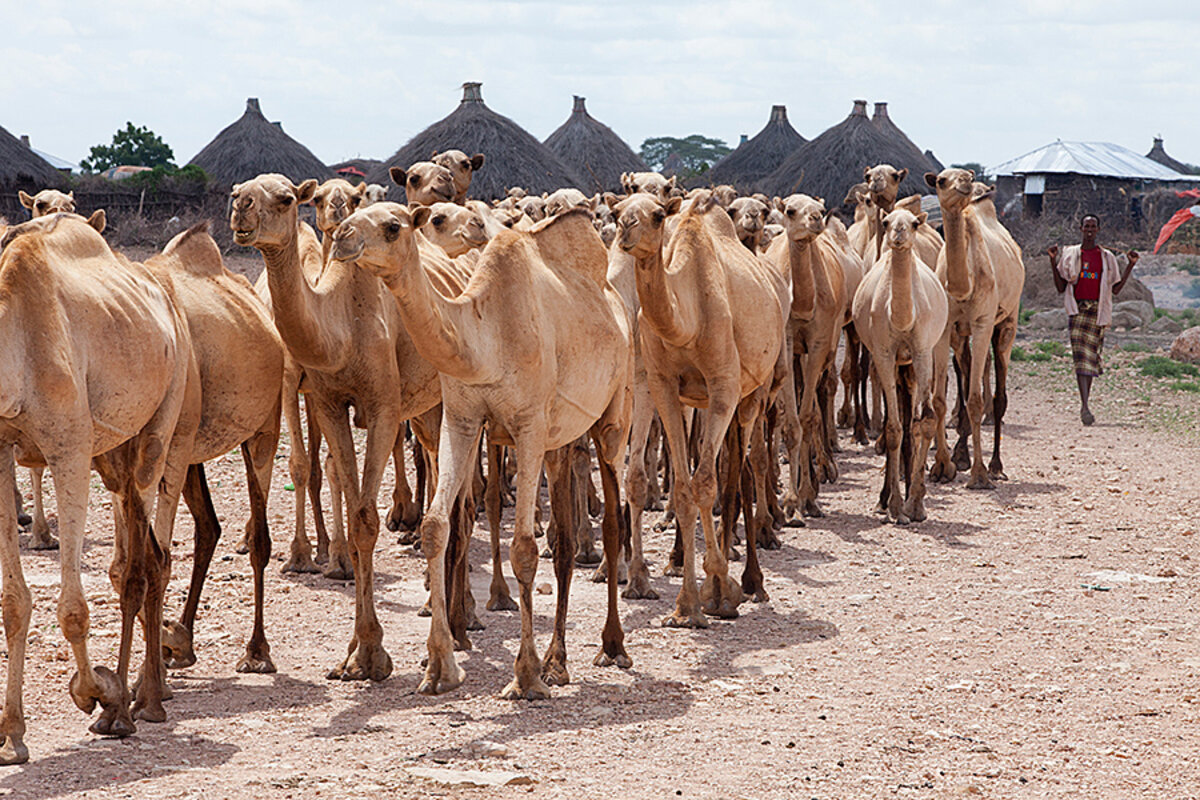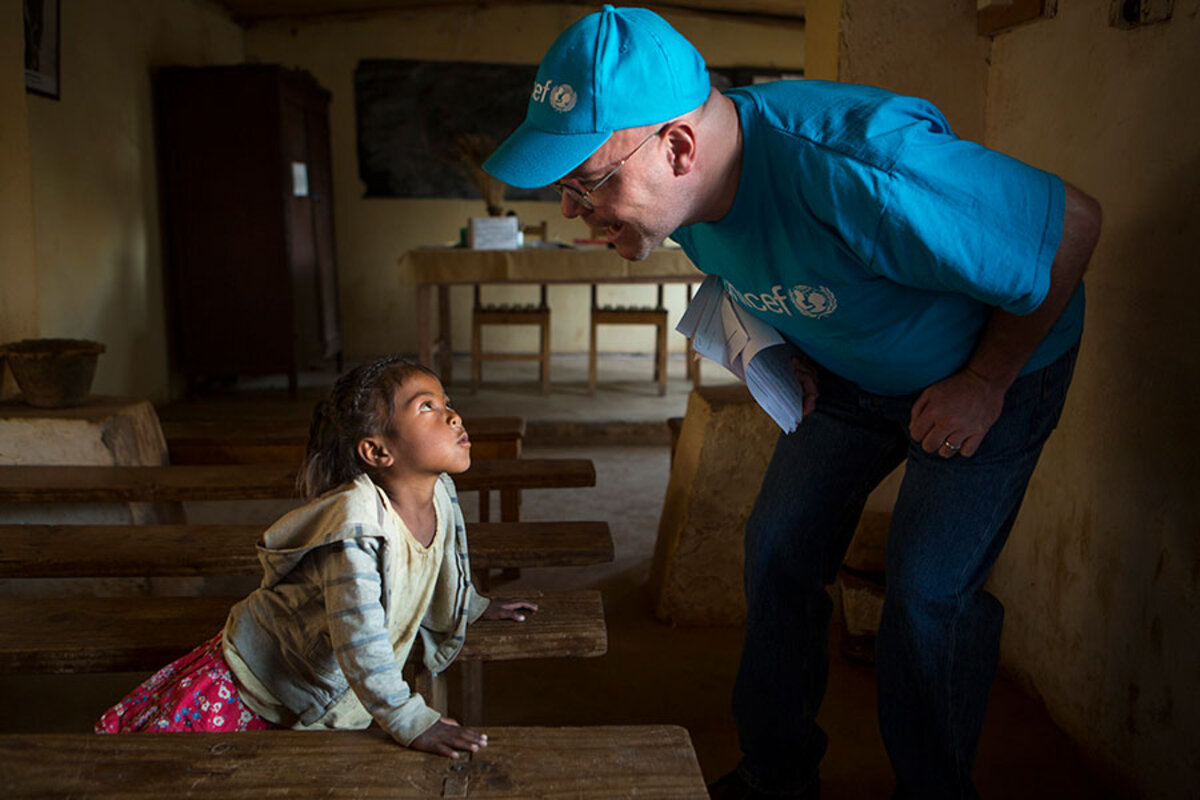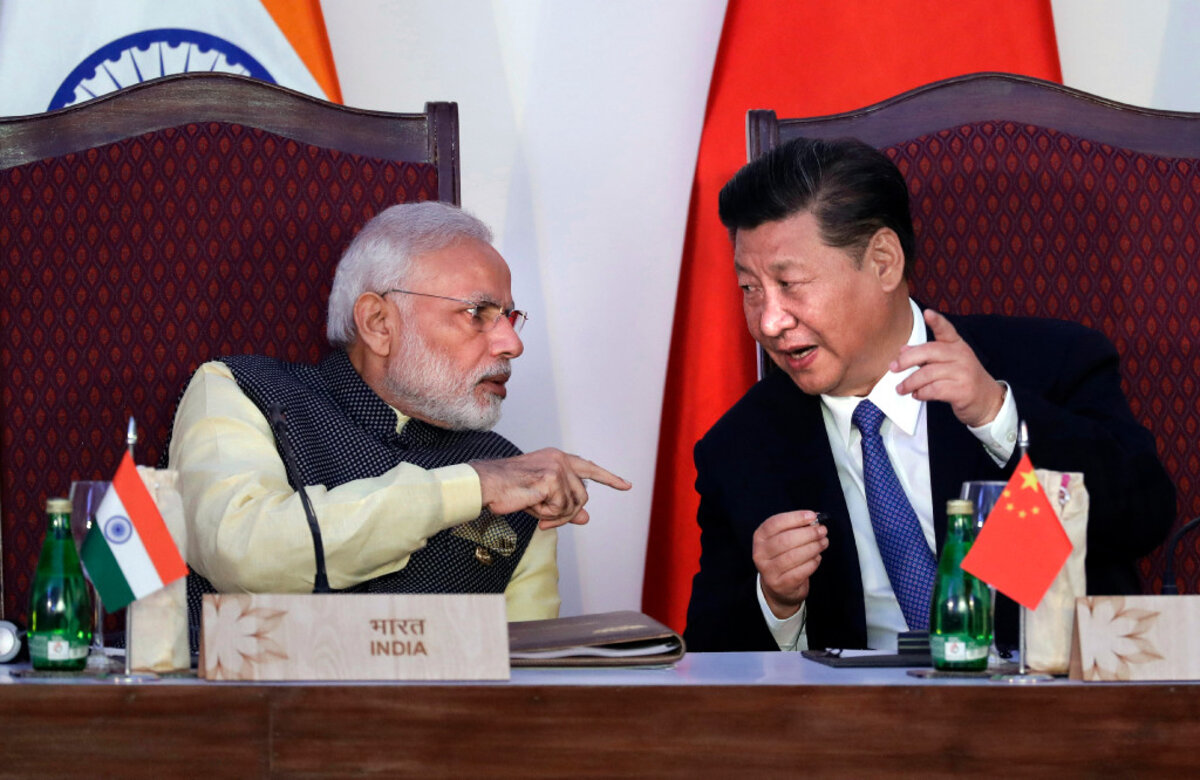Friday marked a low point for trust in Washington, as the Republicans' much-vaunted promise to repeal "Obamacare" collapsed. From the ashes of the bill comes an inescapable conclusion: the necessity to work together to accomplish virtually anything.

Why is Christian Science in our name?
Our name is about honesty. The Monitor is owned by The First Church of Christ, Scientist, and we’ve always been transparent about that.
The church publishes the Monitor because it sees good journalism as vital to progress in the world. Since 1908, we’ve aimed “to injure no man, but to bless all mankind,” as our founder, Mary Baker Eddy, put it.
Here, you’ll find award-winning journalism not driven by commercial influences – a news organization that takes seriously its mission to uplift the world by seeking solutions and finding reasons for credible hope.
Explore values journalism About usMonitor Daily Podcast
- Follow us:
- Apple Podcasts
- Spotify
- RSS Feed
- Download
 Mark Sappenfield
Mark Sappenfield
For me, the remarkable events in Pakistan Friday go back to a living room overlooking the hills outside Islamabad several years ago.
What happened Friday was the fall of Pakistan’s prime minister, Nawaz Sharif. The Supreme Court found that some of his real estate holdings amounted to political corruption. In a corruption-plagued country, the ruling strikes a blow for the rule of law. And it is a victory for Imran Khan, a politician who has built his career on targeting corruption.
It was in his living room that I sat. And what struck me was his fierce conviction that a deep sense of justice is woven into the fabric of Islam and Pakistan. True, that can be warped into radicalism and intolerance. But it also takes form as a commitment to care for the poor, the sick, and the downtrodden.
Mr. Khan imagined a day when that better sense would reshape Pakistan. Friday could be remembered as a historic step in that direction.
Already a subscriber? Log in
Help fund Monitor journalism for $11/ month
Monitor journalism changes lives because we open that too-small box that most people think they live in. We believe news can and should expand a sense of identity and possibility beyond narrow conventional expectations.
Our work isn't possible without your support.
Today’s stories
And why we wrote them
( 5 min. read )

( 6 min. read )
To all appearances, Sunday's elections look like a thinly veiled power grab by President Nicolás Maduro. But to many Venezuelans, there is a thread of hope: the growing activism of the people themselves.

( 6 min. read )
In talking to transgender members of the armed forces as a Pentagon writer in recent years, Anna Mulrine Grobe found something universal: a determination to serve. That hasn't changed, even after a new ban on transgender service was announced this week.
( 6 min. read )
The hunger crisis in Africa is not on many Americans' radar screens. But when people become aware, compassion and capacity for change grow. The question is how to create that energy more consistently.
( 5 min. read )
Imitation, it seems, is the sincerest form of humanity. How do humans learn to be, well, human? In part by acting as a mirror for what we see and like, according to researchers.
The Monitor's View
( 2 min. read )
For the past six weeks, the armies of India and China have been in a tense standoff over the control of a 104-square-mile plateau at about 11,000 feet in the Himalayas. When the only countries with more than a billion people are poised for war, the rest of the world should hope for restraint.
So far, the contest for patience goes to India. It has seen Chinese encroachment many times and watched in recent years as China intruded on the islands of others in East Asia. The two giants even fought a violent war in 1962 over Himalayan territory. India now prefers calm diplomacy over calamitous dispute.
In China, on the other hand, official media has been stoking nationalist fires against India. The warlike rhetoric has yet to provoke India even as China rushes more troops to the region.
China’s aspiration to assert itself as a global power lies at the root of the current confrontation. The standoff began June 16 when a Chinese military unit was caught building a road through the tiny kingdom of Bhutan in an area known as Doklam (or Donglang in Mandarin). India handles many of the foreign affairs of Bhutan, a legacy of British rule as well as Bhutan’s isolation and its own fears after the takeover of nearby Tibet by Communist China in the 1950s.
The new road is part of China’s grand plan known as the “One Belt, One Road” initiative to build a transportation corridor to Europe. The plan is more than economic. China seeks influence over other countries in the region and may be trying to pry Bhutan from India’s orbit. It is also angry that India did not attend the launch of the One Belt initiative in May. The project is a point of pride for Chinese President Xi Jinping as he consolidates power in the run-up to this fall’s Communist Party Congress. India was absent because China plans a road through a part of Pakistan claimed by India.
India’s restraint comes in part from a confidence that other countries, such as Japan and the United States, are challenging China’s territorial claims and aggression in Asia. China and India rely more than ever on global trade, and China is India’s largest trading partner. In addition, both countries have leaders at the helm occupied with internal reform. The two nuclear powers cannot let this military showdown escalate.
The two countries are ancient civilizations but with a key modern difference. One is a democracy, the other a dictatorship. India is used to resolving disputes by a peaceful contest of ideas. Its constructive diplomacy over the Bhutan face-off will hopefully win the day. And as winter approaches in the Himalayas, the two armies may need to retreat anyway. With patience, India and China can then have a fresh opportunity to resolve their differences over Bhutan’s territory peacefully.
A Christian Science Perspective
Each weekday, the Monitor includes one clearly labeled religious article offering spiritual insight on contemporary issues, including the news. The publication – in its various forms – is produced for anyone who cares about the progress of the human endeavor around the world and seeks news reported with compassion, intelligence, and an essentially constructive lens. For many, that caring has religious roots. For many, it does not. The Monitor has always embraced both audiences. The Monitor is owned by a church – The First Church of Christ, Scientist, in Boston – whose founder was concerned with both the state of the world and the quality of available news.
( 3 min. read )
Growing up, Ingrid Peschke was inspired by a photo of her mother dressed as Wonder Woman for a party. So when the recent blockbuster movie “Wonder Woman” came out, she rushed off to see it. She came away thinking about the qualities that women – as well as men – bring to the table in facing today’s real-world “Goliaths.” As the creation of God, who cares for and empowers us, we all naturally possess qualities that support the greater good – such as strength, humility, respect, and teamwork.
A message of love

A look ahead
Come back Monday to learn about what Louisiana is doing to try to address the sea-level rise that is claiming a football-field worth of land an hour. It'll be the first in a four-part series on how communities are fighting for the land the ocean would take away.






